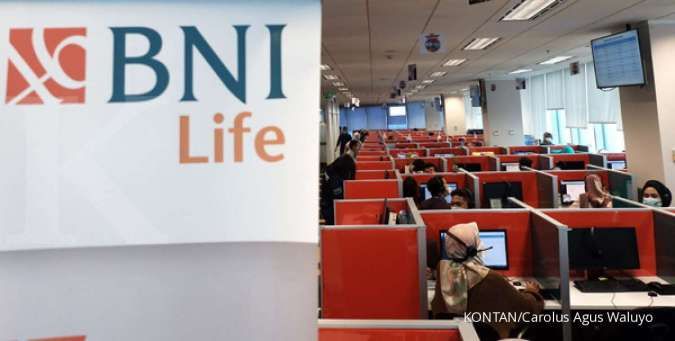
PT BNI Life Insurance has set a premium target of Rp 6.4 trillion for 2024, representing a 19% growth. This target is aimed at supporting the improvement of the insurance industry's health.
Acting President Director of BNI Life, Eben Eser Nainggolan, expressed optimism about the insurance industry's prospects in 2024. He is confident that BNI Life will make a positive contribution to the insurance industry.
"BNI Life has set a premium target of Rp 6.4 trillion for 2024, with a growth target of 19%. By doing so, we can contribute to improving the health of the insurance industry," explained Eben to Kontan.co.id on Wednesday (10/1).
Previously, the Financial Services Authority (OJK) mentioned that there are still seven insurance companies under special supervision. In response, Eben stated that in 2023, there was an increasing awareness among the public about life insurance, although premium income was slightly corrected due to a decrease in income from PAYDI products. However, income from traditional products increased.
"This indicates that the public's understanding of life protection is improving," said Eben.
In terms of capital, Eben stated that the life insurance industry, in general, is still considered healthy. This can be seen from the level of Risk-Based Capital (RBC), with many life insurance companies meeting the RBC requirements set by the regulator. Furthermore, based on the provisions of POJK No. 23 of 2023, the minimum equity requirement is Rp 500 billion until 2026 and a minimum of Rp 1 trillion by 2028. Eben stated that BNI Life's capital is currently recorded at Rp 300 billion, accompanied by Shareholder Funds amounting to Rp 4.2 trillion.
"Referring to the OJK regulations that set a minimum equity threshold of Rp 1 trillion, BNI Life has fulfilled these requirements," said Eben.
Eben also mentioned that BNI Life has prepared strategies to support performance growth. These include maintaining profitable regular premium products, optimizing investment performance, implementing automation and digitalization of business processes, and focusing on enhancing the capabilities and productivity of human resources.
Others News








